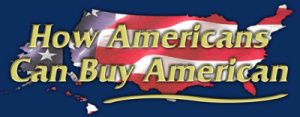Manufacturing critical products is important for U.S. national security. Outsourcing critical components to countries like China, while it may make sense costwise, is dangerous from a strategic perspective.
If manufacturing can be brought back to the U.S. in significant numbers, we will definitely be on our way to creating a smart, healthy, more prosperous, vibrant economy. Failing to do so creates the opposite, and creates instead cesspools of hatred, crime, and other downward societal spirals.
The economic benefits, if manufacturing can be brought back here en masse, are enormous. Manufacturing creates direct and indirect (e.g. consultants, suppliers, etc.) labor jobs and supply chain contracts. Communities spring up to create small towns and cities (such as the Silicon Heartland) where there may have been empty land, creating housing, retail, hotel, food, gym, schools, churches, groceries, restaurants, barbershops, salons and other basic infrastructure which creates its own local economy dynamic. Construction jobs are often the start of that boom, as those empty lands need to be surveyed, bulldozed and leveled, buildings and roads constructed, and people and businesses come in to develop a small growing community.
Because certain countries such as Taiwan received manufacturing revenues for decades, they actually took what they earned and invested it in technology innovation. So not only is chip manufacturing in Taiwan cheaper, it is actually better and in some cases more advanced.
Making manufacturing totally based in the U.S. is not that easy. The supply chain for building airplanes, chips, cars and other sophisticated tech products can be a complex network. On the contrary, building these products and moving their supply chains all to one country requires herculean selection, coordination and monitoring of expert suppliers from different parts of the world.
While robotics have advanced, and AI demolishes service industries, the idea of a “lights out” factory — meaning there are no human workers — is not quite there yet. People are still required in these state-of-the-art factories, although admittedly of higher skill and fewer numbers.
Trump has always stated that he intends to pursue tariffs on key imported products unless they build their factories here. Economists say those tariffs will only make products more expensive. But if those manufacturers agree to bring those factories and jobs here, Trump has said the tariffs will not be imposed, effectively making it a bargaining chip. In general, when you increase the input costs of a manufactured product for various reasons, including adding tariffs to components, equipment and materials, the product price will increase. For imported finished goods, once a tariff is applied, the final price will increase — unless in both cases the company decides to absorb these added costs and not pass these on to buyers, but only if their profit margins are sufficient.
Read the article.


